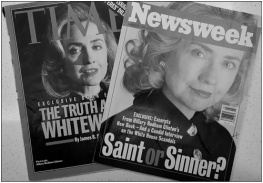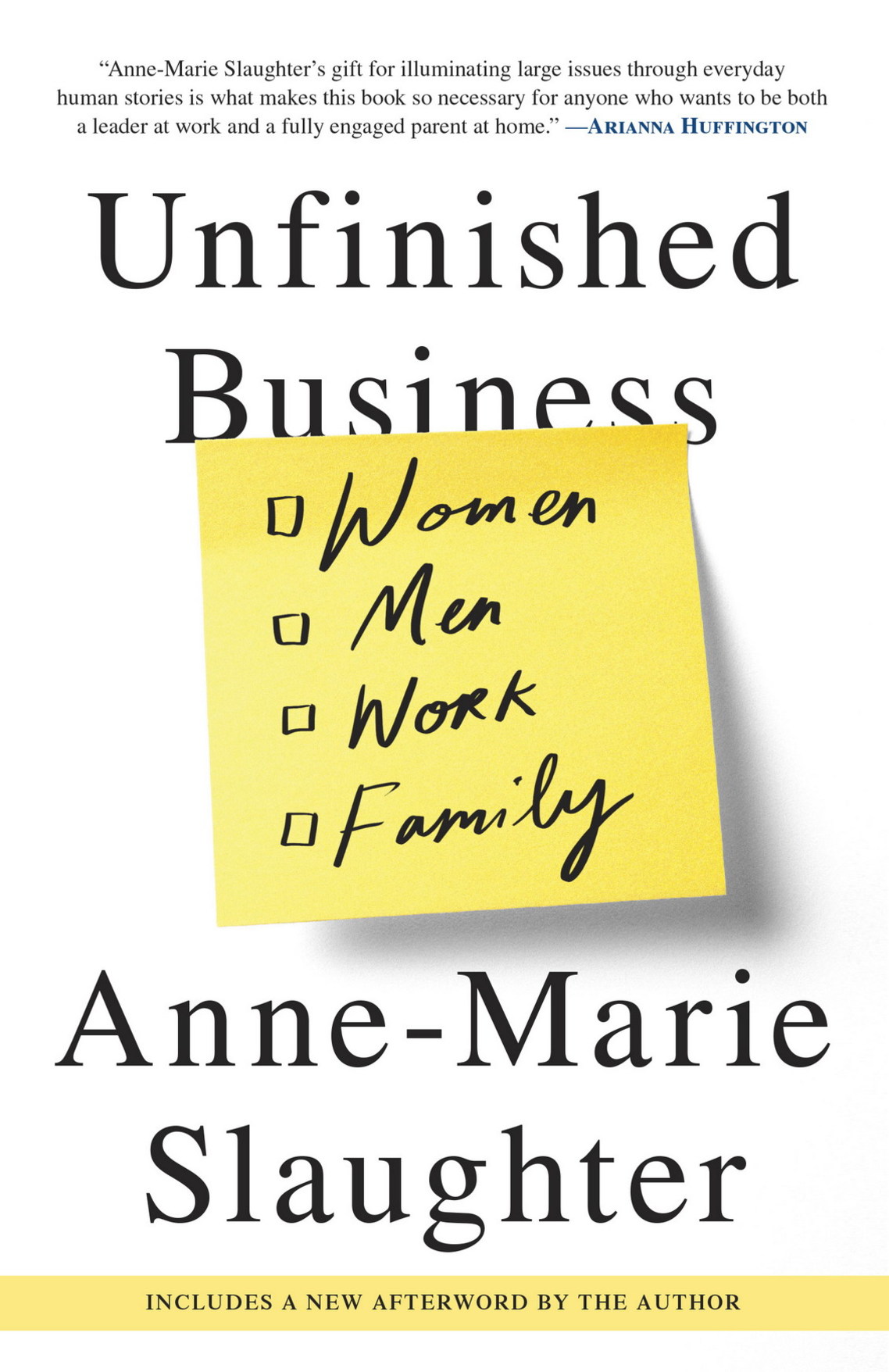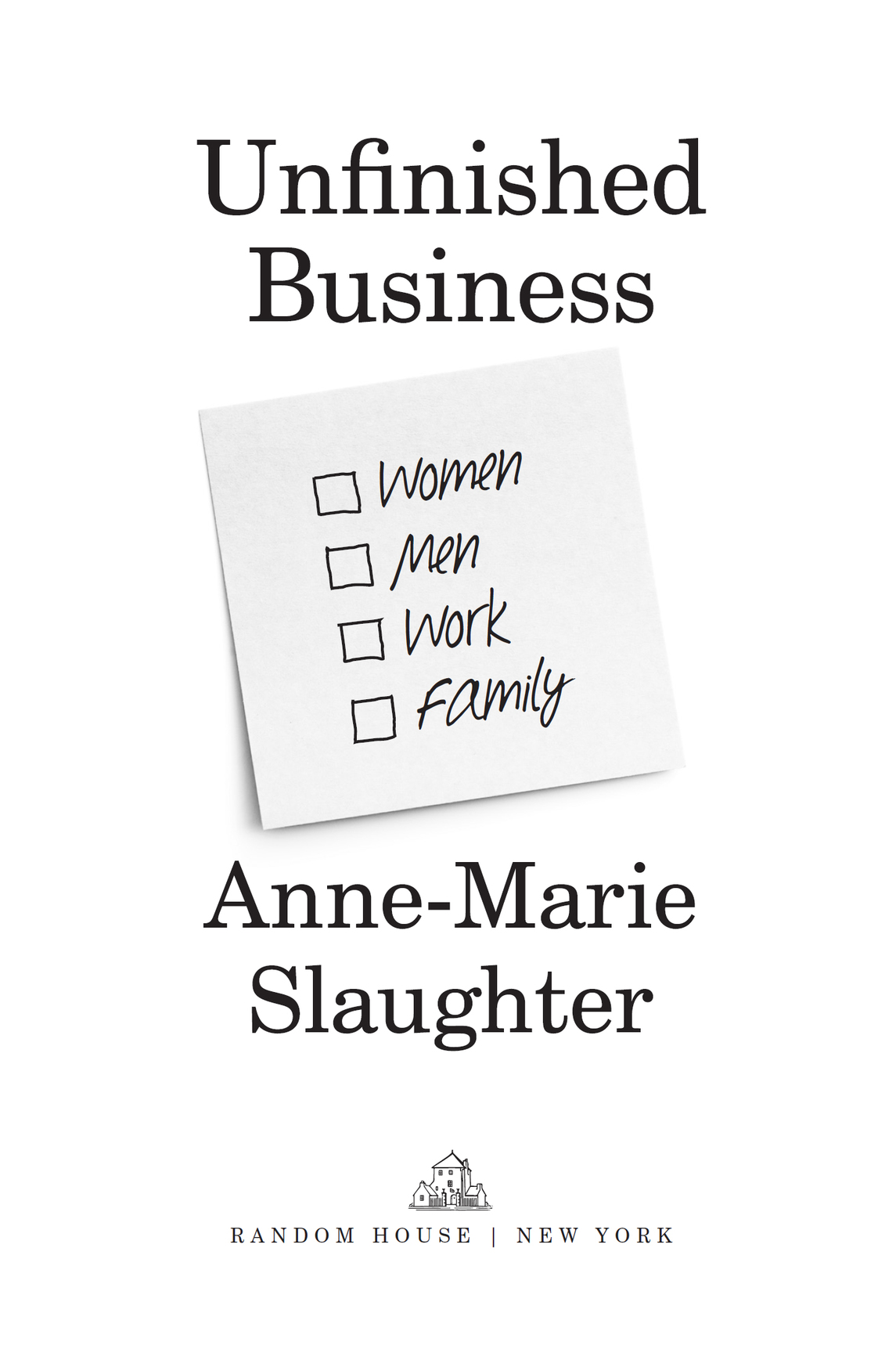All rights reserved.
Published in the United States by Random House, an imprint and division of Penguin Random House LLC, New York.
R ANDOM H OUSE and the H OUSE colophon are registered trademarks of Penguin Random House LLC.
Slaughter, Anne-Marie.
Unfinished business: women men work family / Anne-Marie Slaughter.
1. Sex roleUnited States. 2. Sex discrimination against womenUnited States. 3. Sex role in the work environmentUnited States. 4. Womens rightsUnited States. 5. MotherhoodUnited States. I. Title.
ITS SUCH A PITY YOU HAD TO LEAVE WASHINGTON
In December 2010 I was working round the clock with my team on the Policy Planning Staff of the State Department to finish a major eighteen-month project for Secretary of State Hillary Clinton. It was bitingly cold; as one of my colleagues and I walked home in the early morning hours, we would turn up our collars against the wind and play the endless Washington parlor game of speculating on who would take which job as people came and went after the midterm elections. I kept quiet, but I had been getting unmistakable signals that I could be in line for a promotion myselfto one of a tiny handful of higher positions. I was excitedand deeply conflicted.
I had been working for almost two years as the first female director of policy planning, reporting directly to the secretary of state and responsible for helping her develop and implement big-picture frameworks and strategy for U.S. foreign policy. When Secretary Clinton, a woman I greatly admire and a truly wonderful boss, had called two years earlier to offer me the position, a foreign policy dream job, I immediately accepted. At the same time, I told her that I could only stay for two years. That is the normal period academics receive as public service leave from their universities; if they stay away longer they must give up lifetime tenure. Still, both my husband, Andy, and I expected when I went to Washington that if the opportunity arose for me to stay on in a higher position, it would be very tempting. I had been a professor my entire career, but foreign policy was my lifelong passion.
This was my moment to lean in, to seize the advantage of being in the right place at the right time and propel myself forward. I certainly had no guarantee I would get the promotion if I put myself in the pool, but I had a reasonable chance; the job I wanted was yet another one that no woman had ever held. I would also have a chance to continue advancing an approach to foreign policy that I believed in strongly and that had become a signature of Secretary Clintons tenure.
The woman I always thought I wasthe career woman, the law professor, the dean, the undergraduate who planned to go to law school as a route to the State Departmentwould have said yes, without hesitation. But while the professional side of my life was moving forward, the personal side was more complicated. When I first took the job at State in 2009, Andy and I decided it would be much better for him and our two sons if I commuted to Washington every week rather than uprooting the family. The boys were ten and twelve at that point, in fourth and sixth grades in schools and a community they loved and in which they were deeply rooted. They heartily agreed; as upset as they were to hear that I was headed to Washington, when I suggested that everyone come with me their reaction was essentially Bye, Mom!
Andy is a tenured professor of politics and international affairs at Princeton. He has always been home more than I; my previous job as dean of Princetons Woodrow Wilson School of Public and International Affairs and my various foreign policy activities required much more travel than his work did. And even when I was home, my computer was never far from reach. Indeed, in first grade our older son was asked to draw his family; he drew me as a laptopnot a woman sitting at a laptop, but a laptop itself! Still, at that point my office was only a mile from home and their school; I was able to be at teachers conferences and school and sports events, and the academic schedule also meant that even if I was gone or very busy for stretches, we could always manage catch-up time where we could take a vacation or hang out at home together. I was very present in the boys lives and considered myself incredibly fortunate that I could be both an engaged parent and a committed professional.
Because Andy and I had somehow always made it work, I assumed we would again simply adapt to new rhythms. But the change was wrenching. Over the span of two weeks, between the time Secretary Clinton offered me the job and I started, we went from a world in which my office was a ten-minute walk away from home to a world in which I left the house at five A.M. Monday morning and came back late Friday afternoon or evening. This schedule was not unusual among political appointees in the Obama administration; I knew a number of other women and men who had left their families behind in New York, Pennsylvania, and even California. Moreover, high government officials who have their families right there in Washington do not see them very often; the hours are punishing, precisely because of the importance of the work. World events will not wait on family schedules; crises pile on top of one another and can disrupt even the most cherished family celebrations. As for vacations, I got one vacation day a month, generous by U.S. standards, but by June I still had barely enough for a week away.
As a professional, I reaped the benefits as well as the costs of my choice, which Andy certainly understood and supported. But for our sons, the costs were immediate and large. My younger sononly tenwould cry on Sunday nights when he knew I had to leave the next morning. Once I opened my mouth to try to comfort him and he yelled out, before I could say a word, I dont want you to go. And I dont care about the country! I had explained to him earlier that he was serving his nation just as I was, something Secretary Clinton also told him when she met him, but he had had enough.
Our older son tried to be mature about my leaving, even offering to take over responsibility for the breakfast smoothies I made every morning. He understood how much I wanted the job. He also understood something more universal about my new position; early on in my commute, when I was still learning the Washington ropes and was frustrated enough to have said something about quitting and coming home (not really meaning it, of course), he looked at me and said, Mom, you cant quit! Youre a role model. He had heard that from someone, probably the mother of one of his friends, and already had internalized it.












